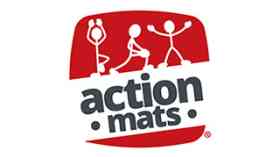Action Mats create resources for primary and early years children focussing on movement skills and active learning.
Supplier Focus
Latest Supplier News
Borg & Overström is a UK manufacturer of premium drinking water solutions. For over 20 years Borg & Overström has developed sustainable, bottle-less, hygienic, drinking water dispensers with the aim to provide exceptional, safe, self-service drinking water into schools, universities, workplaces and communal spaces.

 In August 2012, official figures showed one million young people were still out of work and one in five 16-25 year olds were unable to find a job. We educate children so that they have opportunities, but the challenges that they face are numerous and their environment factors heavily into their expectations.
In August 2012, official figures showed one million young people were still out of work and one in five 16-25 year olds were unable to find a job. We educate children so that they have opportunities, but the challenges that they face are numerous and their environment factors heavily into their expectations. 








